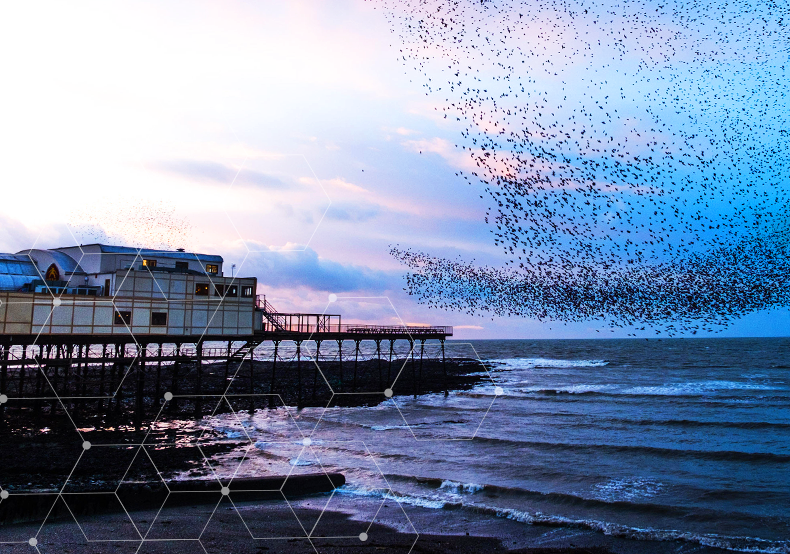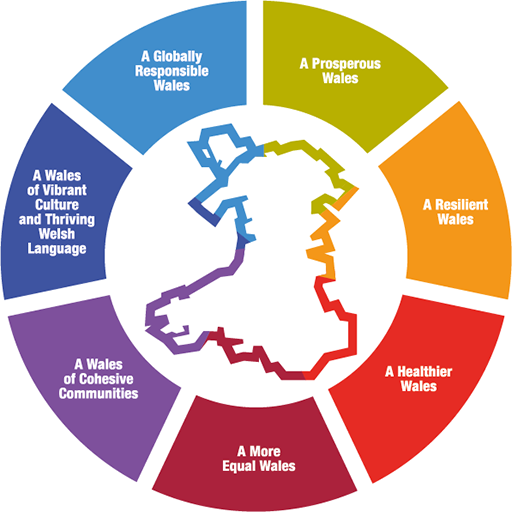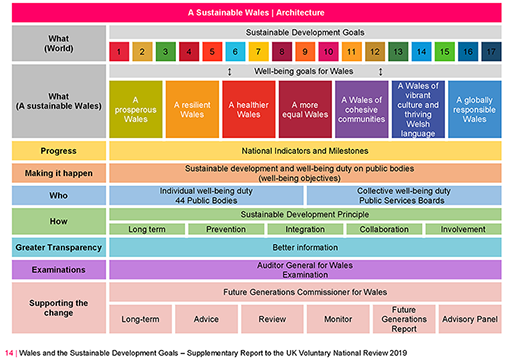3.2 The Well-being of Future Generations (Wales) Act 2015
Wales has some of the most contemporary legislation in the world, drawing on best practice from across the globe. The Well-being of Future Generations (Wales) Act 2015 (Welsh Government, 2015) places a duty on all Welsh public bodies to put sustainability at the heart of all decision making. A Future Generations Commissioner acts as a ‘guardian of future generations’, refocusing decisions on the long-term impacts and reporting on progress (Future Generations Commissioner for Wales, no date).
‘The Well-being of Future Generations (Wales) Act 2015 gives us the ambition, permission, and legal obligation to improve our social, cultural, environmental, and economic wellbeing.’
‘The Well-being of Future Generations (Wales) Act 2015 requires public bodies in Wales to think about the long-term impact of their decisions, to work better with people, communities, and each other, and to prevent persistent problems such as poverty, health inequalities and climate change.’
‘The Act is unique to Wales attracting interest from countries across the world as it offers a huge opportunity to make a long-lasting, positive change to current and future generations.’
The Act is a legally binding common purpose centred around seven wellbeing goals that detail the ways in which specific public bodies must work and work together to improve the wellbeing of Wales. The Act is the most developed act of the four nations of the UK, aiming to improve social, economic, environmental, and cultural wellbeing.
In the videos below Sophie Howe, The Future Generations Commissioner for Wales, explains the Act and the impact it is has had for Wales, and Jane Davidson, Author of #futuregen: Lessons from a Small Country explains how the Act was created.
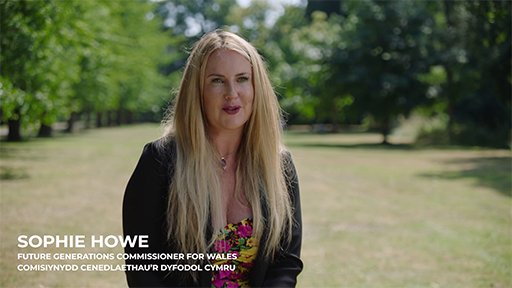
Transcript
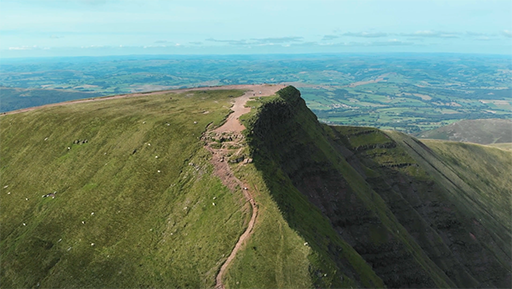
Transcript
The seven well-being goals
To ensure that Wales is working towards the same shared purpose and vision, the act has seven well-being goals that all public bodies must work to achieve. These are explained in Table 1.
A Prosperous Wales An innovative, productive, and low carbon society that recognises the limits of the global environment and therefore uses resources efficiently and proportionately (including acting on climate change); and which develops a skilled and well-educated population in an economy that generates wealth and provides employment opportunities, allowing people to take advantage of the wealth generated through securing decent work. |
|
A Resilient Wales A nation which maintains and enhances a biodiverse natural environment with healthy functioning ecosystems that support social, economic and ecological resilience and the capacity to adapt to change. |
|
A More Equal Wales A society that enables people to fulfil their potential no matter what their background or circumstances (including their socio-economic circumstances). |
|
A Healthier Wales A society in which people’s physical and mental wellbeing is maximised and in which choices and behaviours that benefit future health are understood. |
|
A Wales of Cohesive Communities Attractive, safe, viable and well-connected. |
|
A Wales of Vibrant Culture and Thriving Welsh Language A society that promotes and protects culture, heritage, and the Welsh language, and which encourages people to participate in the arts, and sports and recreation. |
|
A Globally Responsible Wales A nation which, when doing anything to improve the economic, social, environmental and cultural wellbeing of Wales, takes account of whether doing such a thing may make a positive contribution to global wellbeing. |
The Act has a strong focus on how the goals will be achieved by encouraging public bodies and organisations to use sustainable development principles of long term, prevention, integration, collaboration, and involvement, as depicted in the Five Ways of Working table below.
Long-term: The importance of balancing short-term needs with the needs to safeguard the ability to also meet long-term needs. |
|
Integration: Considering how the public body’s wellbeing objectives may impact upon each of the wellbeing goals, on their objectives, or on the objectives of other public bodies. |
|
Involvement: The importance of involving people with an interest in achieving the wellbeing goals, and ensuring that those people reflect the diversity of the area which the body serves. |
|
Collaboration: Acting in collaboration with any other person (or different parts of the body itself) that could help the body to meet its wellbeing objectives. |
|
Prevention: How acting to prevent problems occurring or getting worse may help public bodies meet their objectives. |
The architecture of the Act links to the UN Sustainable Development Goals and framework. The image below provides a clear overview of how its impact will be measured.
Activity 6: Familiarise yourself
Start to familiarise yourself with the Future Generations Commissioner for Wales [Tip: hold Ctrl and click a link to open it in a new tab. (Hide tip)] website.
As organisations operate in an uncertain climate, wellbeing and sustainability is critically important, and it is essential to embed this in organisational development activities and the development of employees’ understanding and capabilities.
Throughout the Supporting Hybrid Working and Digital Transformation collection, you will be referred to the Future Generations Commissioner for Wales website, which contains not only the full act, but also numerous resources that explain it in simple terms, practical tips and case studies of how an organisation can improve wellbeing and support its local community.
It is recommended that you read the Well-being Future Generations (Wales) Act 2015 essential guide available on the main page that provides access to the full Act and an overview of the approach Wales has taken, and then as you have time outside of the time allocated for studying this course, engage with website further.
